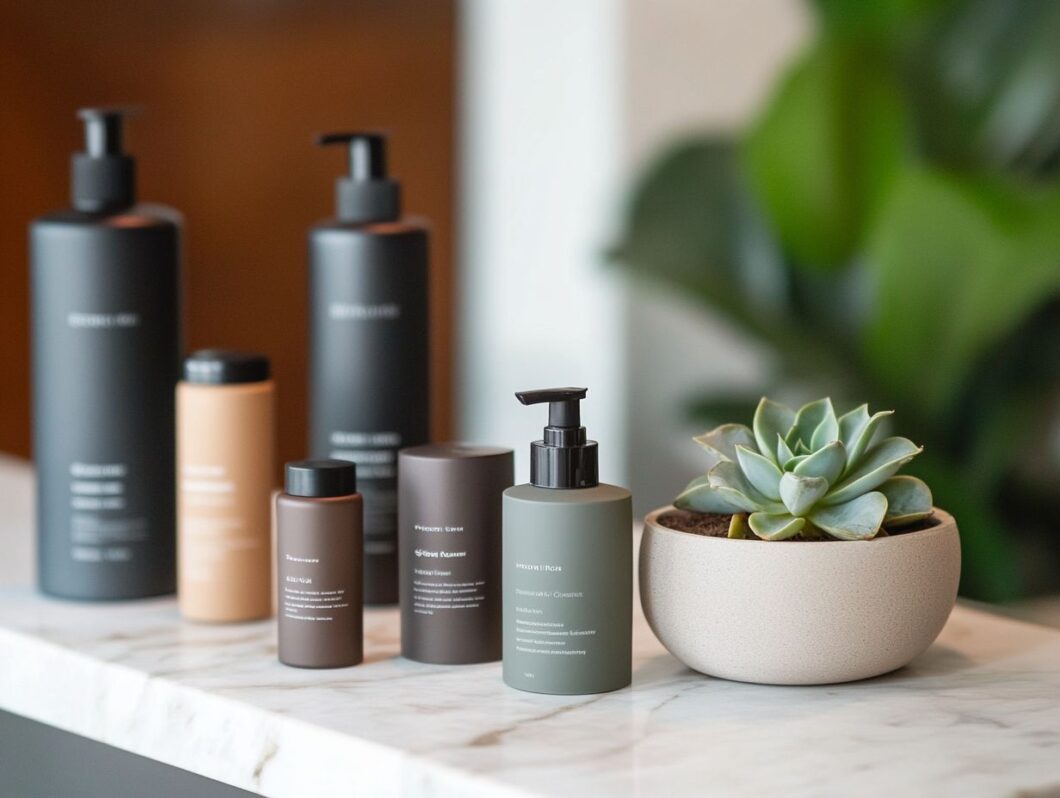The beauty industry is currently abuzz with the latest trend: “skinification” of hair. This innovative approach involves applying skincare principles to haircare, with the promise of healthier scalps and stronger strands.
As this concept gains momentum, it is essential for me to explore what it entails, its numerous benefits, and how I can successfully integrate it into my routine.
However, I also recognize that there are potential drawbacks to consider. Whether I am a haircare novice or a seasoned enthusiast, understanding how “skinification” could transform my haircare routine is imperative.
Key Takeaways:
Understanding the “Skinification” Trend
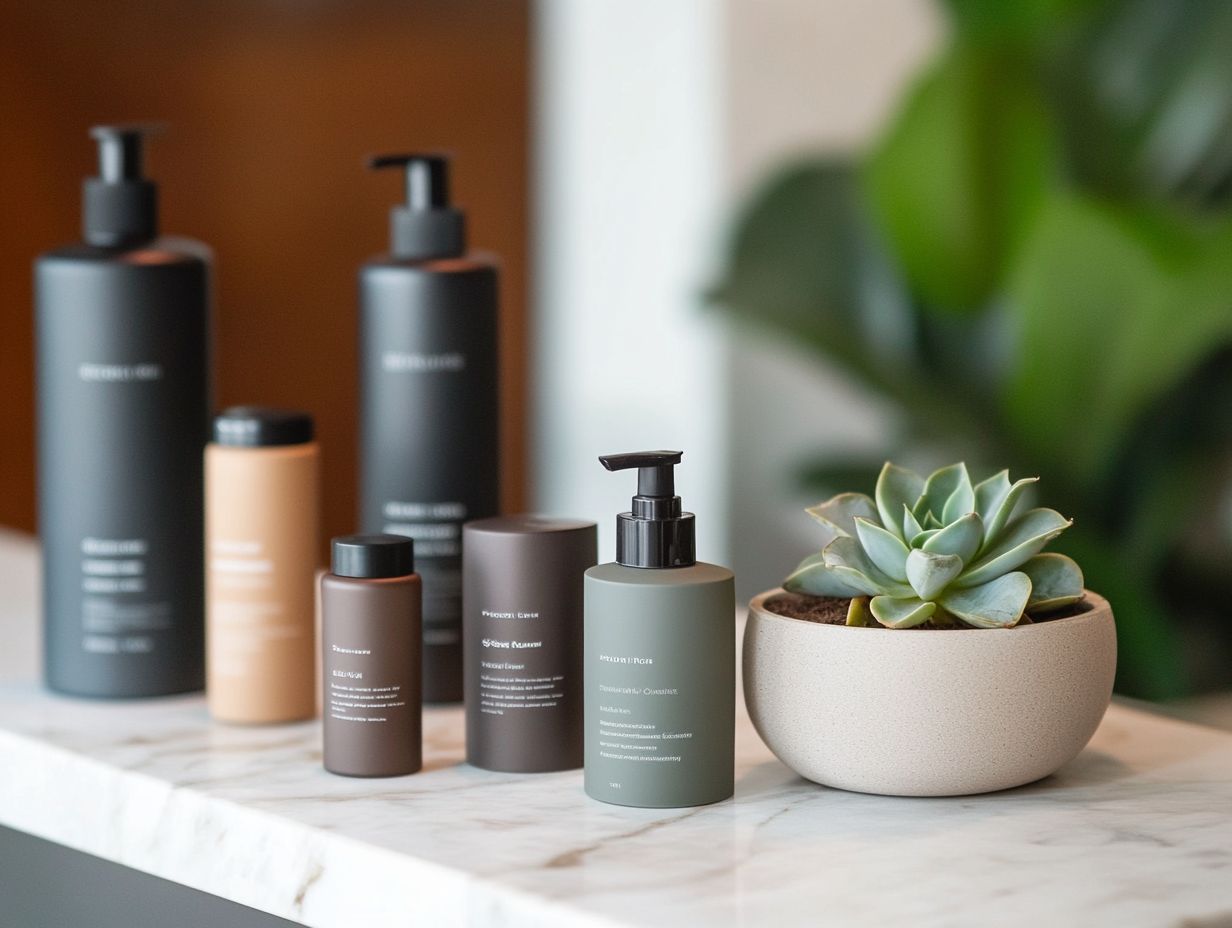
The trend of ‘Skinification’ has emerged as a groundbreaking concept in the beauty industry, emphasizing the integration of skincare principles into hair care routines.
As I observe consumers becoming increasingly aware of the importance of holistic wellness, this movement highlights the need to nurture not just the hair but also the scalp. Product buildup and dead skin cells can significantly impede healthy hair growth, making this focus essential.
By adopting a skincare-like approach, I aim to achieve optimal scalp health through methods such as exfoliation, hydration, and nourishment, much like a dedicated skincare regimen.
This trend promotes the use of active ingredients and natural oils that not only protect but also revive the scalp, ultimately leading to robust and vibrant hair.
What is “Skinification” of Hair?
Skinification of hair involves applying skincare principles to hair and scalp care, with a strong focus on nourishment, hydration, and protection through the use of ingredients that are beneficial for the skin.
This innovative approach encourages me to treat my scalp with the same level of care I give my face, advocating for treatments that incorporate active ingredients commonly found in skincare, such as hyaluronic acid, niacinamide, and peptides.
Exfoliation, a fundamental aspect of skinification, is essential for removing dead skin cells and creating a healthy environment for hair growth. Additionally, moisture retention is vital, as maintaining hydration in both hair and scalp can help prevent issues like dryness and flakiness.
By integrating these skincare techniques, I can rejuvenate not only my hair but also my scalp, leading to an overall improvement in hair health and appearance.
The Rise of this Trend
The rise of the skinification trend can be attributed to an increasing emphasis on holistic beauty, where I observe that consumers are actively seeking healthier hair solutions that address both scalp conditions and overall hair vitality.
This movement has gained significant traction as individuals, including myself, become more aware of the importance of hair and scalp health, treating them with the same care and quality products they apply to their skin. Dermatologists have also endorsed this trend, highlighting the significance of using gentle, nourishing ingredients that not only enhance the appearance of hair but also promote scalp wellness.
Consequently, I’ve noticed a marked shift in consumer preferences toward vegan and cruelty-free options. Brands like Aveda and Briogeo have emerged as leaders in this arena, offering innovative products that integrate skincare principles with effective hair care, thereby making skinification an essential topic within the beauty industry.
Benefits of “Skinifying” Your Hair
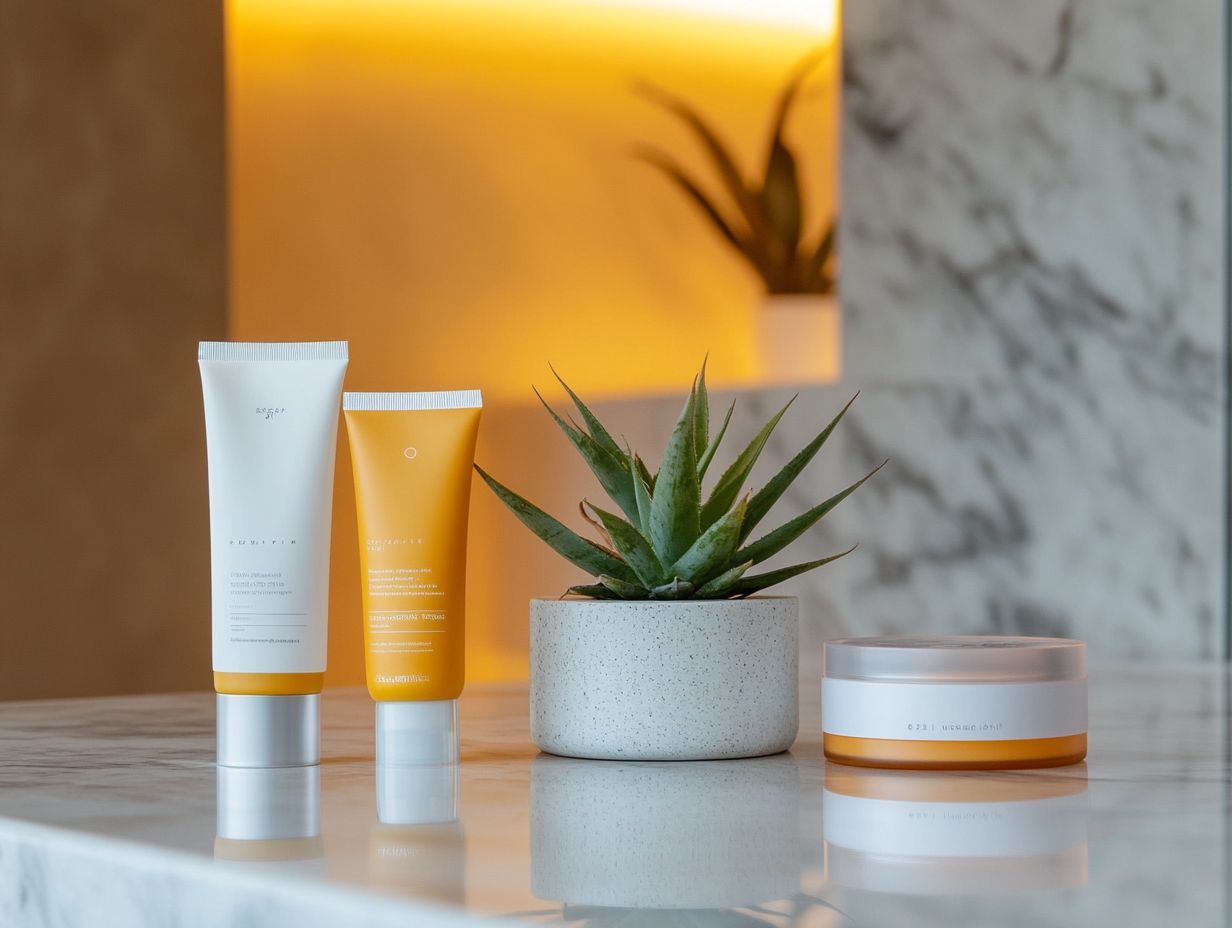
Integrating skin care principles into my hair care routine offers numerous benefits that greatly enhance both the health of my scalp and the strength of my hair.
By focusing on improved scalp health, I can effectively prevent issues such as dandruff and dryness. Utilizing products rich in active ingredients allows for optimal scalp hydration, ensuring that my hair receives the necessary nourishment to thrive.
Furthermore, by prioritizing scalp treatments that emphasize exfoliation and moisturizing, I can significantly boost the overall vitality of my hair, resulting in a vibrant and lively appearance.
Improved Scalp Health
Improved scalp health is a primary benefit of skinification, as it directly addresses issues such as product buildup and dead skin cells that can lead to various scalp conditions.
Incorporating regular scalp exfoliation into my hair care routine allows me to effectively remove these unwanted substances, paving the way for healthier hair growth and a balanced scalp environment.
Products like the Scalp Revival™ Dandruff Relief Shampoo are particularly beneficial, as they contain key soothing ingredients such as salicylic acid and witch hazel. These components work together not only to alleviate dandruff but also to promote a calm and refreshed scalp.
The gentle exfoliation helps to unclog hair follicles while minimizing irritation, ensuring that my scalp remains nourished and revitalized. Ultimately, this leads to a brighter and more confident appearance.
Strengthened Hair
One of the significant advantages I’ve experienced with a skinification approach is strengthened hair, as it emphasizes providing essential nourishment and protection to each strand.
By incorporating active ingredients like peptides, niacinamide, and natural oils such as coconut and argan oil, I’ve found that this innovative methodology greatly enhances the structural integrity of my hair.
Peptides bond with the keratin, fortifying resilience, while niacinamide promotes improved blood circulation to the scalp, which positively impacts hair growth and vitality.
Additionally, oils like coconut and argan not only deliver essential moisture but also create a protective barrier against harmful environmental stressors, including UV rays and free radicals.
Maintaining an optimal moisture balance is crucial for preventing dryness and brittleness, allowing my hair to retain its strength and shine over time. This ultimately promotes a healthier appearance that can withstand everyday challenges.
How to “Skinify” Your Hair
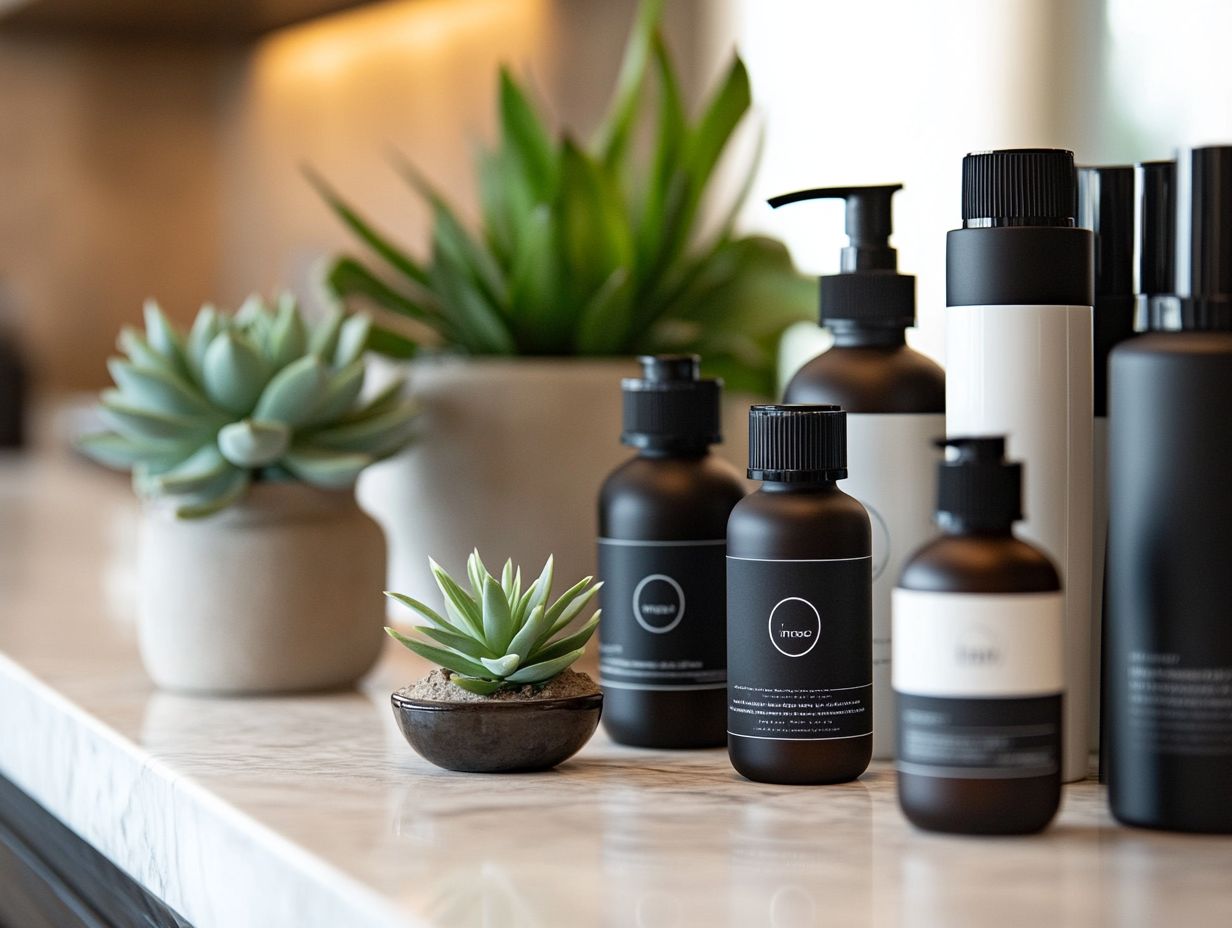
To effectively achieve healthy hair, I recognize the importance of adopting specific products and techniques that align with the principles of holistic scalp and hair care.
This approach ensures that I provide the necessary nourishment and hydration for optimal hair health.
Products and Techniques
Choosing the right products and techniques is essential for successfully “skinifying” hair, as they need to address both scalp health and hair nourishment.
My journey begins with effective scalp hydration and gentle exfoliation, which fosters a balanced and healthy environment for hair growth. For example, incorporating a product like Scalp Revival™ Charcoal + Coconut Oil Micro-Exfoliating Shampoo can significantly improve the process, as it not only cleanses impurities but also invigorates the scalp, establishing a foundation for optimal hydration.
Following this step, I prioritize serums rich in antioxidants and skin-loving ingredients, as they are crucial for restoring moisture levels and providing resilience against environmental stressors. This holistic approach ultimately enhances the overall vitality and shine of my hair, making scalp care an critical aspect of my hair care routine.
Potential Drawbacks of “Skinifying” Your Hair
While I recognize that skinifying my hair offers numerous benefits, I must remain aware of the potential drawbacks that can result from an improper approach, such as product buildup and exacerbation of scalp conditions.
Possible Negative Effects
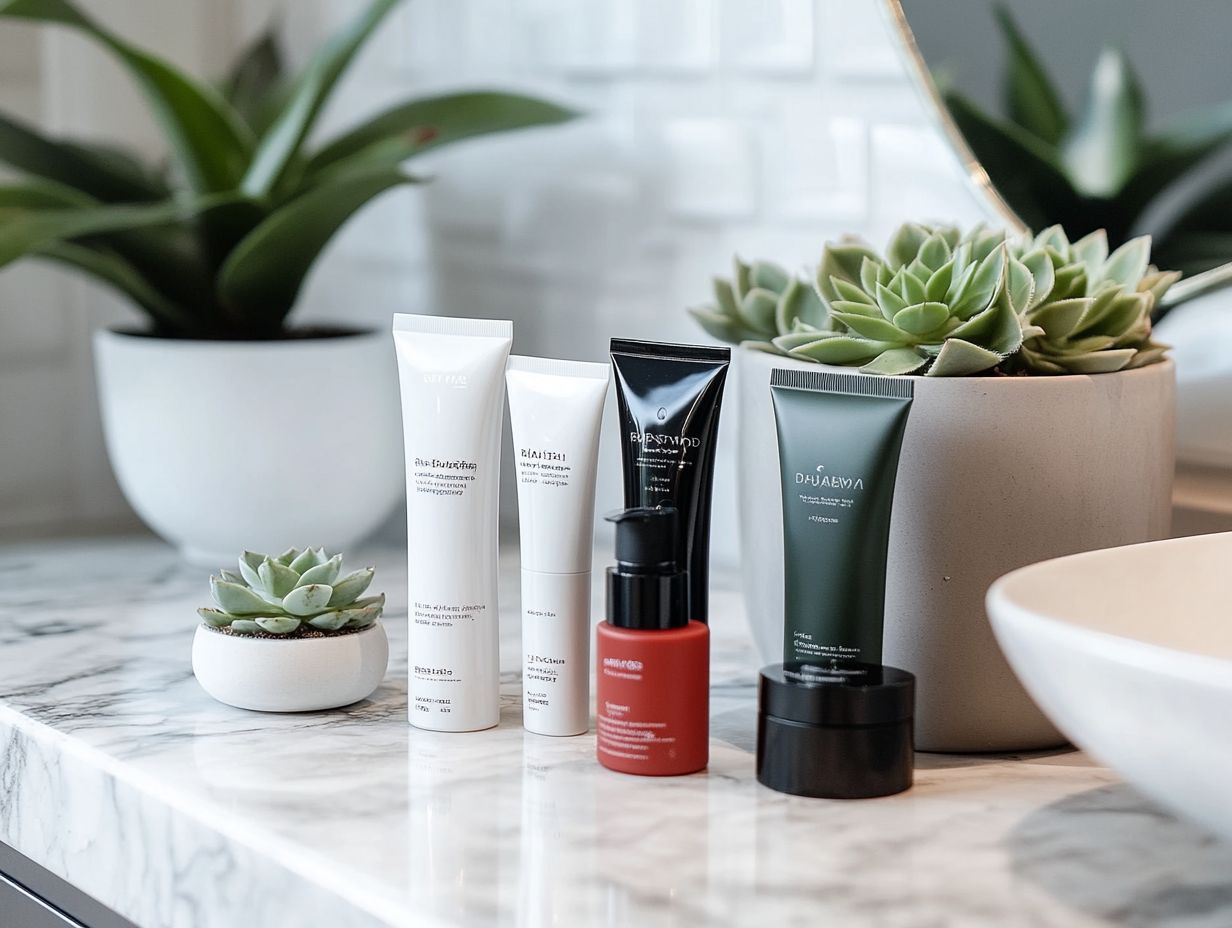
I recognize that skinifying hair can have some negative effects, such as product buildup, which may lead to clogged pores and exacerbated scalp conditions. This underscores the importance of careful product selection and application.
When I apply heavy serums or oils designed for skin to my hair, the residue can build up on my scalp, creating an unfavorable environment for hair follicles and potentially worsening conditions like folliculitis or seborrheic dermatitis.
To mitigate these risks, I follow the advice of dermatologists by choosing lighter formulations specifically designed for hair textures and committing to regular cleansing with clarifying shampoos.
As I explore skinification, I make it a point to introduce new products gradually and monitor my scalp’s response. This approach helps me maintain a balance between nourishment and avoiding excessive layering, which could impede healthy hair growth.
Alternatives to “Skinifying” Your Hair
For individuals who find that skinifying their hair does not meet their specific needs, there are several alternatives available that can effectively enhance hair health through various methods.
Other Ways to Improve Hair Health
I have found that improving hair health can involve a variety of holistic wellness practices, particularly through the use of natural oils that effectively nourish both the scalp and hair.
Beyond just applying natural oils, I recognize the importance of dietary considerations in significantly enhancing hair vitality. Consuming a balanced diet abundant in essential vitamins and minerals—especially biotin, vitamin E, and omega-3 fatty acids—plays a crucial role in supporting hair growth and strength. I have discovered that including foods such as avocados, nuts, and fatty fish in my diet can yield excellent results.
Additionally, making lifestyle changes to reduce stress through mindfulness techniques or yoga can greatly benefit hair health, as stress is often a significant factor in hair loss. I have found that lavender oil, renowned for its calming properties, not only promotes better scalp circulation but may also encourage hair growth. Likewise, coconut oil serves as a natural moisturizer, effectively preventing protein loss and enhancing the overall shine of my hair.
By adopting these practices, I have observed that my hair becomes not only healthier but also more vibrant.


